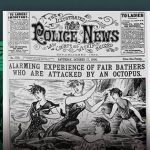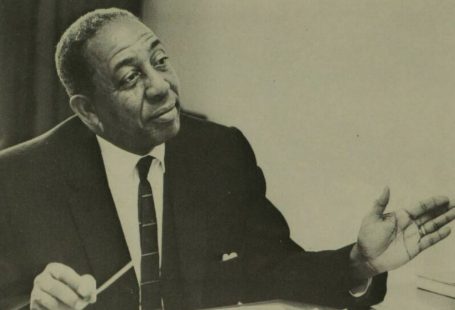
Today, millions of Americans are celebrating the 4th of July, America’s Independence Day. The day commemorates the date that the Continental Congress signed the Declaration of Independence in Philadelphia in 1776. The event was met with celebrations in the colonies, but what did the British think of this declaration? We will look through The British Newspaper Archive to understand the reaction of the British press to America’s Declaration of Independence.
America’s Revolution
At the time of the Declaration of Independence, America and Britain had been at war since the battles of Lexington and Concord in April 1775. Plenty had been written and discussed in the British press about the American rebels along with daily reports and accounts of the American militia and movement of British troops. In the six months leading up to the Declaration of Independence, the colonists and British were reading Thomas Paine’s Common Sense. A pamphlet which explained the colonists’ natural right to declare independence. Extracts of the text were printed in the Caledonian Mercury.
Search the newspapers for more

The rebellious sentiments of the American colonists were not unknown amongst the British public. However, many did believe that the rebellion would be ended quickly and the colonists would go back to being loyal subjects of the Crown. You can follow the events of the American Revolution through the newspapers. They were often reported through correspondents from those living in the colonies. The press also printed letters and reports from the Continental Congress in Philadelphia.

Search tips
Three tips to remember when searching the British newspapers for events from the American Revolution.
1 – There would have been a delay in the news reported, in the case of the Declaration of Independence, it was not printed until 24 August.
2 – America was not the United States or USA at that point, most papers would have referred to the country as the American colonies.
3 – In 18th-century newspapers, the letter S resembles the letter F. Therefore, if you are searching the newspapers and cannot find what you want, try replacing the S with an F. For example, Obfervations instead of Observations.
Declaration of Independence
To understand the reaction in Britain to the Declaration and not the overall Revolution, we focused our search on August 1776. As mentioned above, the Declaration of Independence was published on 24 August 1776 in the Newcastle Chronicle, seven weeks after the adoption of the Declaration by the Continental Congress took place in Philadelphia.

The Newcastle Chronicle published the Declaration without comment, but The Scots Magazine did not hold their tongue. The American Declaration of Independence was printed in the August 1776 edition of the magazine. The Scots Magazine is the oldest magazine in the world. The Declaration was printed with a running commentary. The author had much to say about the famous preamble of the Declaration. First, the author argues that if all men are created equal, then shouldn’t that be an argument for staying with Britain rather than declaring independence. Since all American colonists would be equal to their fellow British subjects. Next, the author wrote that to declare that the writers of the Declaration were ignorant to the meaning of words, particularly the statement that all men have an unalienable right to life, liberty and the pursuit of happiness. The author explained,
‘but to say that a man with life hath a right to be a man with life, is so purely American, that I believe the texture of no other brain upon the face of the earth will admit the idea’.
He further insulted the Declaration by professing,
these gentlement ‘assume to themselves an unalienable right of talking nonsense’.

In the Kentish Gazette from Saturday 24 August 1776, the dispute between Great Britain and her American colonies was declared, of a nature the most important of any which has ever arisen, from the earliest period that history can trace; it involves questions of national right, justice, interest, honour and prudence, of greater consequence to the British dominions than any ever heretofore agitated’. It went on to say that the revenue laws which the American rebels were resisting had been similar to laws passed in the colonies for over a century. Since the time the colonies were settled, the Crown used Acts of Parliament to raise taxes and revenue from the colonies. Furthermore, the paper stated that the grievances were not just with particular laws (ie Stamp Tax, Boston Port Bill, etc) but rather the fact that the colonists wanted to shake off the authority of the King and the Parliament of Great Britain.
In another edition of the Kentish Gazette, went further to say that the colonists are inventing these plots and plans of slavery by the British Crown through taxation and that these grievances are only being used to achieve a further goal of independence. Moreover, the colonists had been led by their Priests and Demagogues on this self-destructive road to independence.
‘They now pretend to discover plots and plans of slavery, in statutes by which they and their fathers have lived and even in their very charters on which they were first settled; and by their champion, Dr Price, they now kick charters, compacts, statutes, and precedents all out of doors, as useless things, affording no rule by which to try the reasonableness and justice of their new and exorbitant claims’.

Dr Price
The Dr Price referred to in the previous statement was Dr Richard Price, a Welsh preacher and philosopher who advocated for American independence. His pamphlet Observations on the nature of civil liberty, the principles of government, and the justice and policy of war with American sold thousands of copies in England and Wales. Dr Price was criticised for his views, however, the popularity of his pamphlets demonstrates that there must have been many who believed the American rebels to be right. Extracts from Dr Price’s pamphlet were published the Kentish Gazette, 21 February 1776. Dr Price explained that the relationship between Britain and her colonies was similar to a relationship between parent and child, but that authority should have been gradually relaxed. ‘But like mad parents, we have done the contrary; and, at the very time when our authority should have been most relaxed, we have carried it to the greatest extent, and exercised it with the greatest rigour. No wonder then, that they have turned upon us; and obliged us to remember, that they are not children’. He continued that the Crown has failed to support and protect the colonies and that the war against America was a ‘gross and flagrant violation of the constitution’.

Reaction in America
The newspapers relied on letters and correspondence from those living in America in order to report events and occurrences in the colonies. The Scots Magazine printed a series of letters from people in New York, Pennsylvania, and New Jersey about the reading the Declaration of Independence in public.
The first letter was written 4 July 1776 and it explained the ceremony when Congress declared America independent.
‘The 4th of July, 1776, the Americans appointed as a Day of Fasting and Prayer, preparatory to their dedicating their Country to God, which was done in the following manner: The Congress being assembled, after having declared America independent, they had a Crown placed on a Bible, which by Prayers and solemn devotion they offered to God. This religious ceremony being ended, they divided the crown into thirteen parts, each of the United Provinces taking apart’.

A second letter from New York described how the crowd pulled down a statue of King George III and the metal was melted to use as bullets.

In Princeton, New Jersey, the Declaration was met with a volley of muskets.

By exploring The British Newspaper Archive, we have found the opinions of the British press in response to the America colonists declaring their independence. For the most part, the British press seemed to dismiss the Declaration and the grievances of the colonists. However, through the popularity of people such as Dr Price, it is evident that some took up the cause of the American rebels and supported their independence.
Subscribe today and access thousands of newspapers about the American Revolution







4 comments On British reaction to America’s Declaration of Independence
very nice article. i like it. thanks for share it with us
Greetings,
I represent Georgian Educational Institution – Georgian Institute of Public Affairs (GIPA). To Tell you briefly about our organization, It was founded back in 1995, financially supported by US department of state. Since the day of its establishment, we are actively cooperating with US Embassy and Donor Organizations, which support GIPA through various projects. We offer BA MA PHD an Vocational programs.
We would like to kindly ask the permission to use the photo, that we found in the internet and belongs to you. We want to affiliate the photo to one of our academic programs in Public Administration. We realize the importance of copyright. Here is the link, that transferred us to your website: https://goo.gl/RJUjMi
We would very much appreciate your kind assistance.
Thank you in advance and looking forward to hearing from you soon.
Regards,
Tina Kldiashvili
If you want to know and learn the process where passwords are stored in Microsoft Edge, you only have the option to visit this tutorial page and know all the steps here for free. I’m also an apprentice on this platform and now it’s your turn.
8th Class Time Table 2019